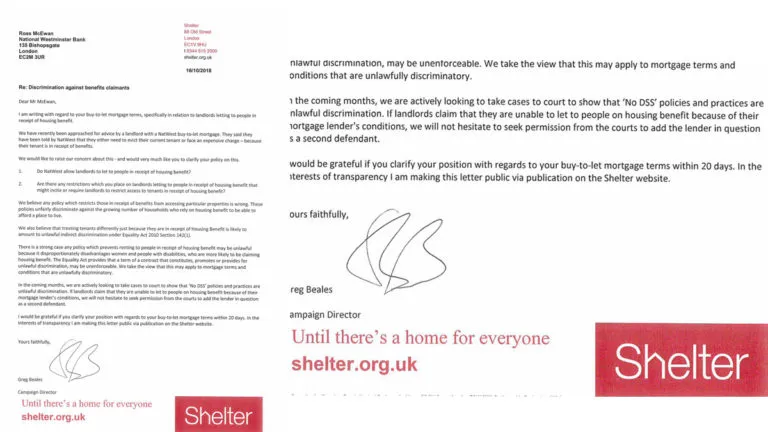The national housing emergency and the Green Party
Published: by Robin White

On 12 December, the United Kingdom will go to the polls in a general election for the third time in four years. One thing, however, is abundantly clear: whoever the next government is, they will need to take radical steps to tackle our national housing emergency.
For the 1.1 million households on council waiting lists, the 277,000 people who are homeless in England, and the millions of families trapped in insecure private rentals, action can’t come soon enough.
To help us understand more about what each of the parties would do about this, Shelter will join with eight other organisations from across the housing and homelessness sectors to host a National Housing Hustings. This will take place on 4 December and will include representatives from across England’s major political parties – you can follow all the action on social media using #housinghustings.
The hustings will be an opportunity for those who are experiencing the housing emergency to engage in the debate and hear the detail of what each party would do over the next parliament.
Ahead of the event, Shelter has produced short summaries of each party manifesto to highlight some of the key things we already know about their plans to tackle the housing emergency. Today, we’ve taken a look at the Green Party, whose co-Leader Sian Berry will be joining us on the night and whose manifesto, If Not Now, When?, will form the basis of her argument on the night.
The Green Party and housebuilding
In If Not Now, When?, the Green Party offers a ‘Green New Deal for housing’. And at the heart of this new deal is a commitment to deliver 100,000 new, socially rented council homes per year. These would be built to the rigorous Passivhaus standard, as seen in the new Goldsmith Street development in Norwich.
Shelter, alongside organisations across the housing sector including Crisis, CPRE, the National Housing Federation and Homeless Link, have been clear that at this election, at least 90,000 social homes per year are needed. This is then a first step to achieving the 3 million more homes that Shelter’s Independent Social Housing Commission identified as being needed over the next 20 years.
On top of their social housing plans, the Green Party are also promising to:
- give local authorities the ability to set planning fees locally
- expand the powers of councils to tackle landbanking (where land is hoarded rather than built on), for example through levying charges on unbuilt homes
- take steps to introduce a Land Value Tax
The Green Party and private renting
The Greens have committed to ending Section 21 ‘no-fault’ evictions. This was announced by the previous government, but was not legislated before the snap election was called. Delivering this would be a huge change for renters, giving them more of the stability and security they desperately need.
In addition, the manifesto commits to:
- the introduction of rent controls on private tenancies, which would reflect average local incomes
- provide tenants in Houses in Multiple Occupation (HMOs) the chance to buy their homes and run them as a housing co-operative
- make it easier for communities to set up community run housing initiatives
The Green Party and housing benefit
Local Housing Allowance (LHA) – the housing benefit for private renters – isn’t working. In fact, LHA rates now fail to cover the cheapest third of rents in 97% of the country, and in a third of England the LHA rate doesn’t even cover the bottom 10% of the market.
While the Green Party does commit to replacing ‘Universal Credit and the cruel benefit sanctions regime’, it makes no comment on how this would be achieved or what it would be replaced by, so it’s hard to explain their solution to the issues around LHA. In addition, it is noted that following their commitment to introduce a Universal Basic Income, they say all those in need of housing benefit would continue to receive it. But it is not clear whether anything would be done to rebase rates for those renting privately, which we have said should be to cover at least the 30th percentile of market rents.
For those currently struggling to find and stay in a home they can afford, further detail around these issues is vital.
The National Housing Hustings
On Wednesday 4 December, we’ll have the opportunity to find out more about how these pledges would be delivered at the National Housing Hustings hosted by Centrepoint, Crisis, CPRE, Homeless Link, National Housing Federation, RIBA, RICS, Shelter, and St Mungo’s.
Housing spokespeople have been invited from the Conservative, Green, Liberal Democrats and Labour parties – the four parties that had an MP elected in England at the last general election.
Questions will come from people who have experienced the housing emergency first-hand, including those trapped in private renting, waiting for a social home, and those who have seen the reality of homelessness.
If you’re interested in housing and want to make your voice heard at this election, you can email your prospective parliamentary candidates to ask them to commit to ending the housing emergency.